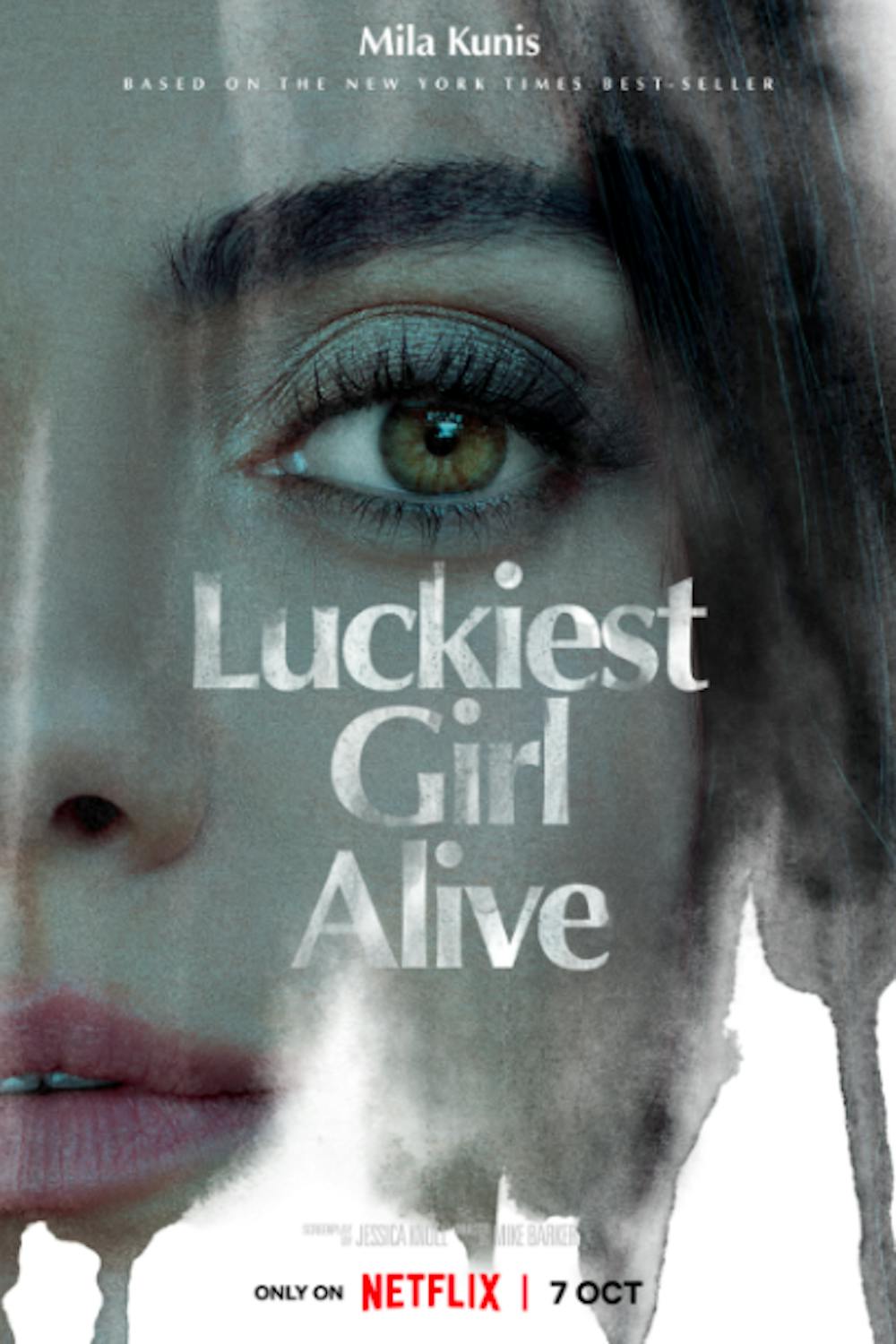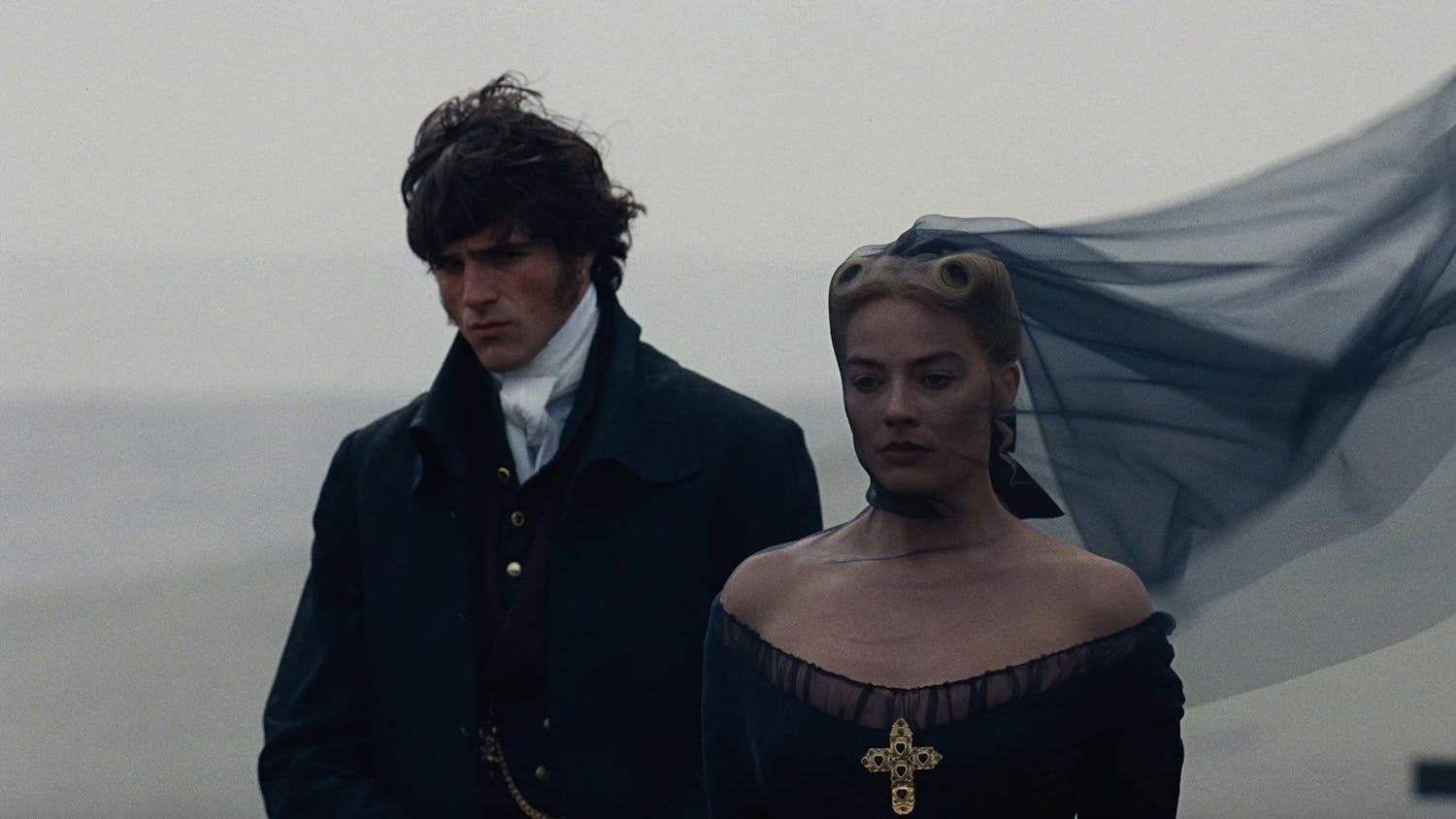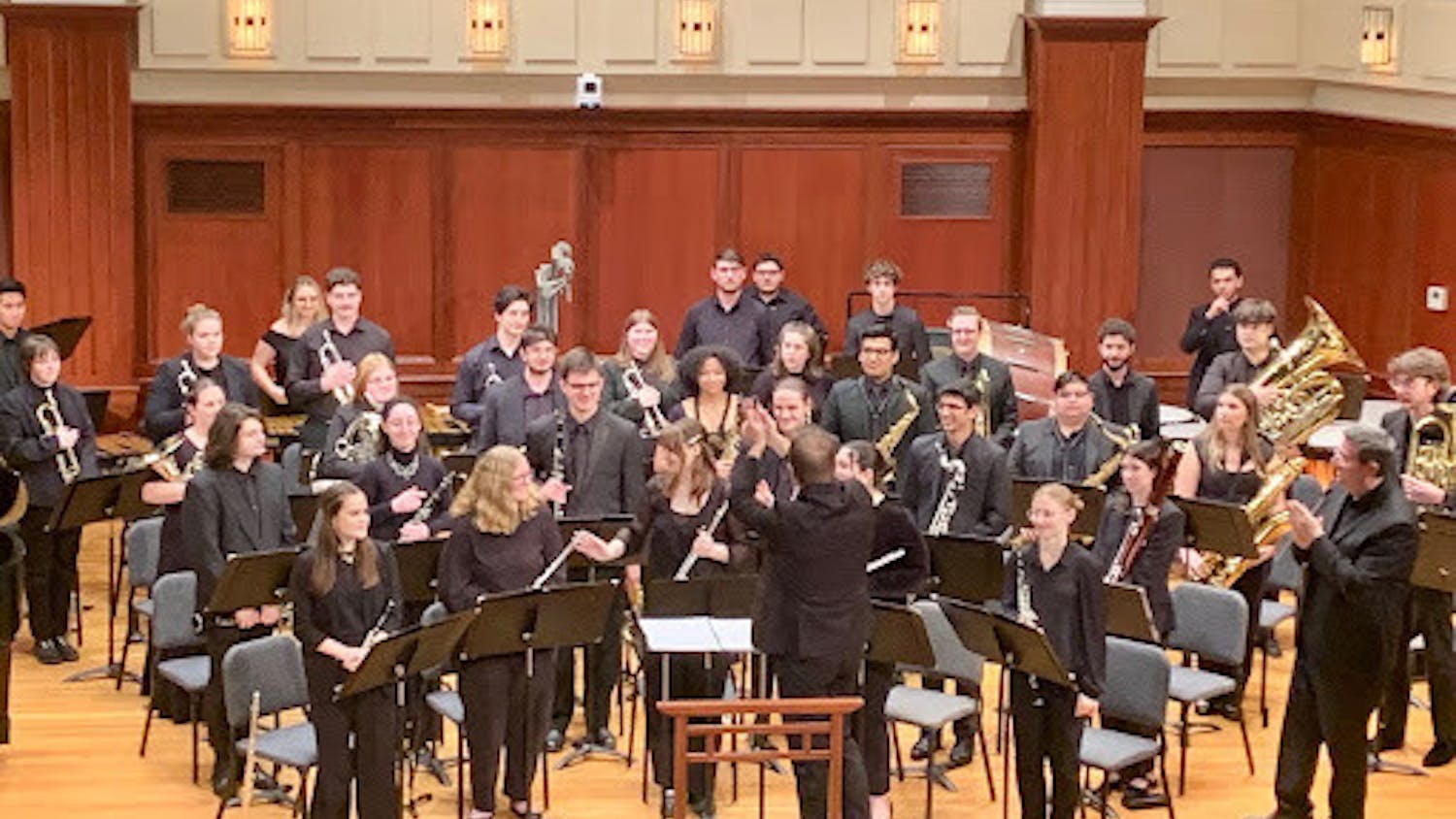By Sara Nigro
Staff Writer
Netflix’s newest thriller film, “Luckiest Girl Alive,” was released on Friday, Oct. 7 and shares an honest story reflective of issues relevant in today’s world.
The film is based on the novel of the same name, written by New York Times Bestseller Jessica Knoll. Knoll also wrote the screenplay for the film, working alongside director Mike Barker.
“Luckiest Girl Alive” tells the story of a past tragedy taking up space in the main character's current life.
While the majority of films released through Netflix follow a similar pattern of somewhat cheap and cheesy production, “Luckiest Girl Alive” breaks this mold. The mystery depicts very serious matters in a respectful and impactful way to its audience. It is accurately rated R as there are very intense scenes that further add to the significance of sharing the story.
Starring Mila Kunis as Ani FaNelli and Chiara Aurelia as the young version of Ani, the story follows the character in the present, as well as in the past.
The story takes place in New York City and follows Ani, a character with many identities: a writer waiting for her big break, a fiance to a rich man who comes from old money, and a woman struggling to reconcile with her past.
Throughout the film, the audience learns about Ani’s tragic past, first through the lens of the general public, and eventually on a more personal level as the film delves deeper into Ani’s secrets.
The film focuses on the importance of truth and honesty, and Ani often struggles to decide whether or not certain details deserve to be shared with the world. This becomes significant when she is offered the opportunity to share her side of the story in regards to the incident that happened almost two decades prior.
She is approached by the director of a documentary that is interested in interviewing the victims and those affected by the tragedy. Ani uses this opportunity to revisit the past and ultimately she has to decide what will be best for her.
One of my favorite aspects of the film was its ability to fully develop both timelines. The “present” takes place in 2015, the year that the novel was published, and the past shows Ani’s highschool experience at her exclusive private school in 1999.
The two actors that play Ani feel as if they are played by one person, allowing for a natural, human progression of the character.This gives the audience a stronger understanding of the character as a whole and how the tragedy has shaped her as a person.
These timelines are enhanced by the skillful editing of the film. From the first scene, I was interested in what had happened and what was yet to come, and the editing played an integral role in creating that feeling.
The shifting between the past and present storylines was done almost seamlessly and often held a relevant connection to one another. For example, a cable knit sweater is mentioned in one of the scenes from the past, and as it shifts back to the present a cable knit sweater is weaved into the dialogue, connecting the two in a subtle way.
In addition to the editing, the pacing in a mystery or thriller film is very important to me as a viewer. Barker was able to pace the movie in a way that kept its audience hooked throughout the entire film. He keeps both timelines moving at a steady pace and makes the revelations regarding the scenes from 1999 relevant to the scenes in 2015.
While some of the dialogue was a little bit cringey at times, the narrations given by Kunis shed light on the inner workings of the mind of the character Ani, giving her a dimension that is often lacking in films. This addition is reflective of Knoll’s involvement in the film.
Although I have yet to read Knoll’s novel, I appreciate when authors are involved in the filmmaking process, especially screenwriting, as their involvement brings authenticity to the story by the person who originally envisioned it (for example, Jenny Han’s work on the Amazon Prime series of her books, “The Summer I Turned Pretty”).
A film with a topic as serious and intense as this one needs to be handled in a cautious manner in order to create a film that is as impactful as it is entertaining. “Luckiest Girl Alive” tells a moving story in a cohesive manner because of its vulnerable script and powerful performances given by Kunis and Aurelia.
“Luckiest Girl Alive” is now streaming on Netflix.







